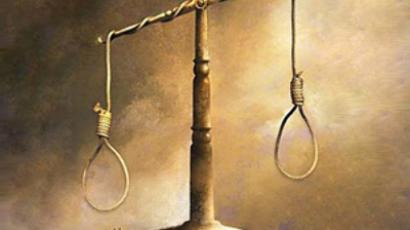Four years on: Anna Politkovskaya’s murder still unsolved
October 7 marks four years since Russian journalist Anna Politkovskaya was gunned down in her apartment block. Her family and human rights activists are hitting out at police for not doing enough to find her killer.
Denis Vasiliev makes no secret that he dislikes journalists. To him, they are too intrusive, too simplistic and too manipulative.
This attitude is quite typical. According to polls, at least two thirds of Russians distrust what they read in newspapers or see on TV.
”I am tired of journalists. And I am tired of going over things that have no impact on society again and again,” Vasiliev said.
Ironically, it was a journalist that helped him find justice.
In 2001 he was badly beaten – first by thugs, then by the Russian police to whom he turned for help. When it seemed that everything in his country has failed him, one reporter came to his aid. It was Anna Politkovskaya.
“Our tragedy was widely publicized in newspapers and on TV, but only Anna Politkovskaya touched upon the real-life problems of the people she wrote about,” said Denis’s mother Marina Kondratyeva.
“Strong psychological pressure from the authorities, the involvement of psychiatrists and the police, the attempts to open criminal cases against us…No journalist is willing to take the risk of bringing those things out to the public,” she added.
That story in the Novaya Gazeta newspaper helped Denis to win a case against the Russian Federation at the European Court of Human Rights, one of many that Politkovskaya’s reporting led to.
“A journalist who deals with people’s pain as part of their job and tries to actually help people rather than just reflect their stories should not be something out of the ordinary,” said Novaya Gazeta’s deputy editor in chief, Sergey Sokolov.
”We have too many objective journalists who only litter the information sphere. Anna never did that,” he added. “Her main goal was to help people not just write a piece about them. A journalist’s work does not end once the story is done. That is what she believed.”
While she is often credited for rekindling people’s faith in justice, four years later, the people responsible for Politkovskaya’s own murder remain unpunished.
Russia’s Investigative Committee says the case is very challenging, but the search for the killers and masterminds is still ongoing.
Politkovskaya’s daughter Vera, who over the years has developed a striking resemblance to her mother, says the family is still hopeful.
“We still have hope, of course, but the way the investigation is going and the way the trial went, we can tell that the investigators have not made much progress,” Vera said. “I cannot see anything that would indicate we are getting closer to the truth.”
Vera Politkovskaya has also become a journalist, but she admits that her dedication to the profession is nowhere near as intense as her mother’s. Vera’s number one priority is her four-year-old daughter Anna.
People who knew Anna Politkovskaya say she had zero tolerance for formalism and officialdom, and that she continues to defy them even after her death.To commemorate Politkovskaya’s death, several hundred people gathered in central Moscow on Thursday for one minute of silence. Among them were a few high-profile artists, writers and politicians, and just people who loved Politkovskaya or admired her work.
“I remember her by the last article she wrote in Novaya Gazeta,” said Liya Akhedzhakova, a famous Russian actress who attended the meeting. “After reading it, I said to my friend: Anya will be killed soon. And she was killed within a few days. The article was about what’s happening in Chechnya, her investigation.”
“Anna was absolutely exceptional, she was obsessed by the truth,” human right activist Tatyana Lokshina said.
On the building where she lived and was murdered there is a commemorative plaque with her name and date of death. In the city code it is prohibited to put such plaques within five years of a person’s death.
While Moscow officials have few reasons to appreciate her reporting, and have all the legal grounds to remove it, the plaque is still there – a tribute to her life and a condemnation of her death.













